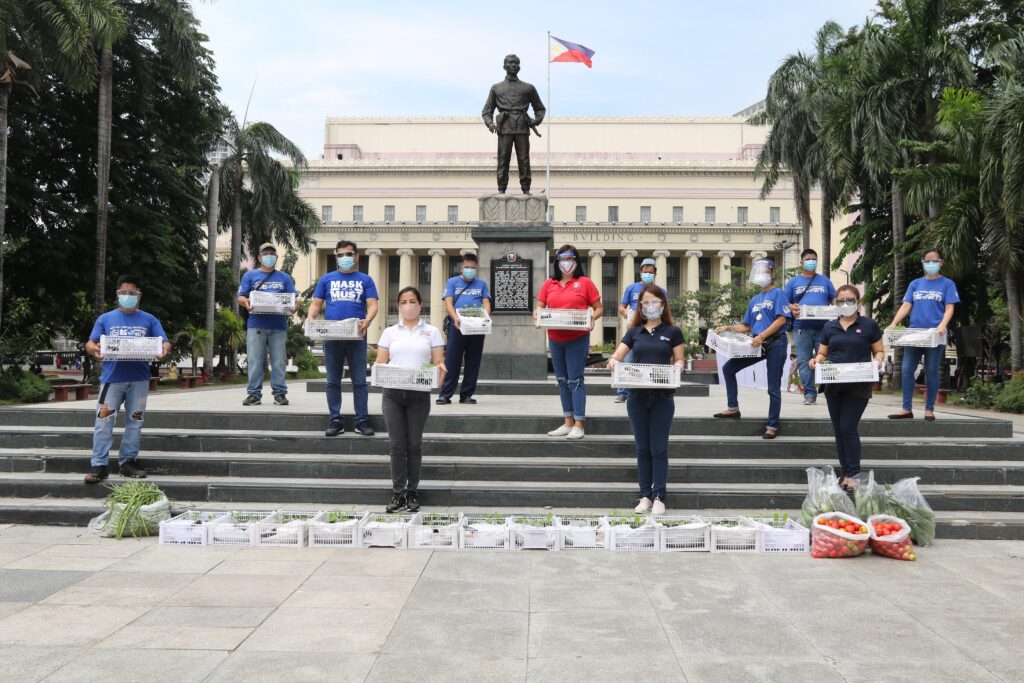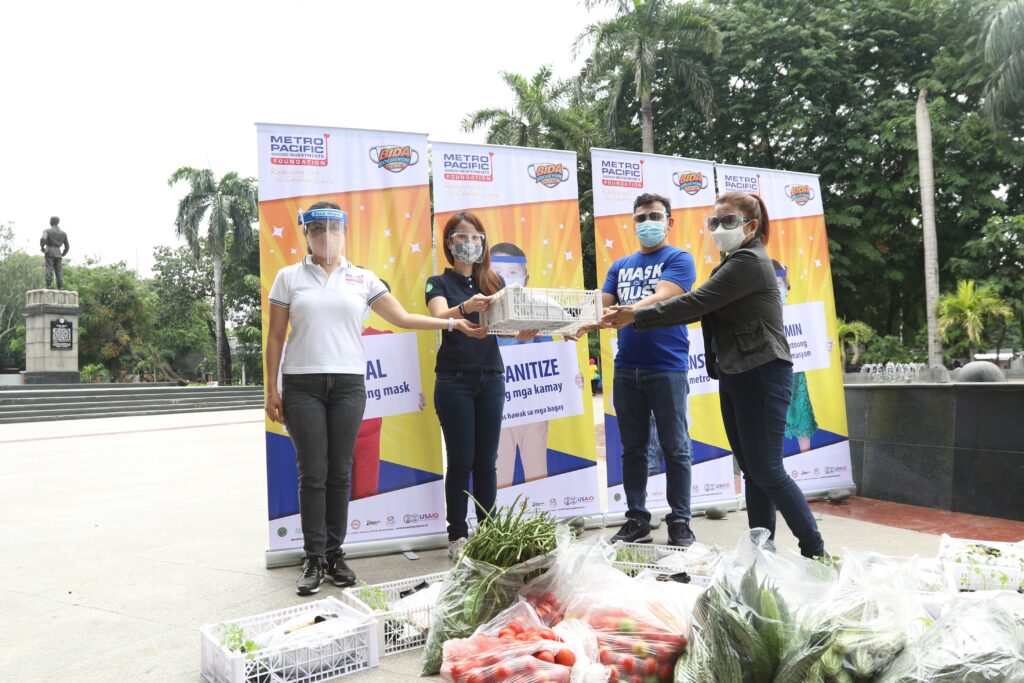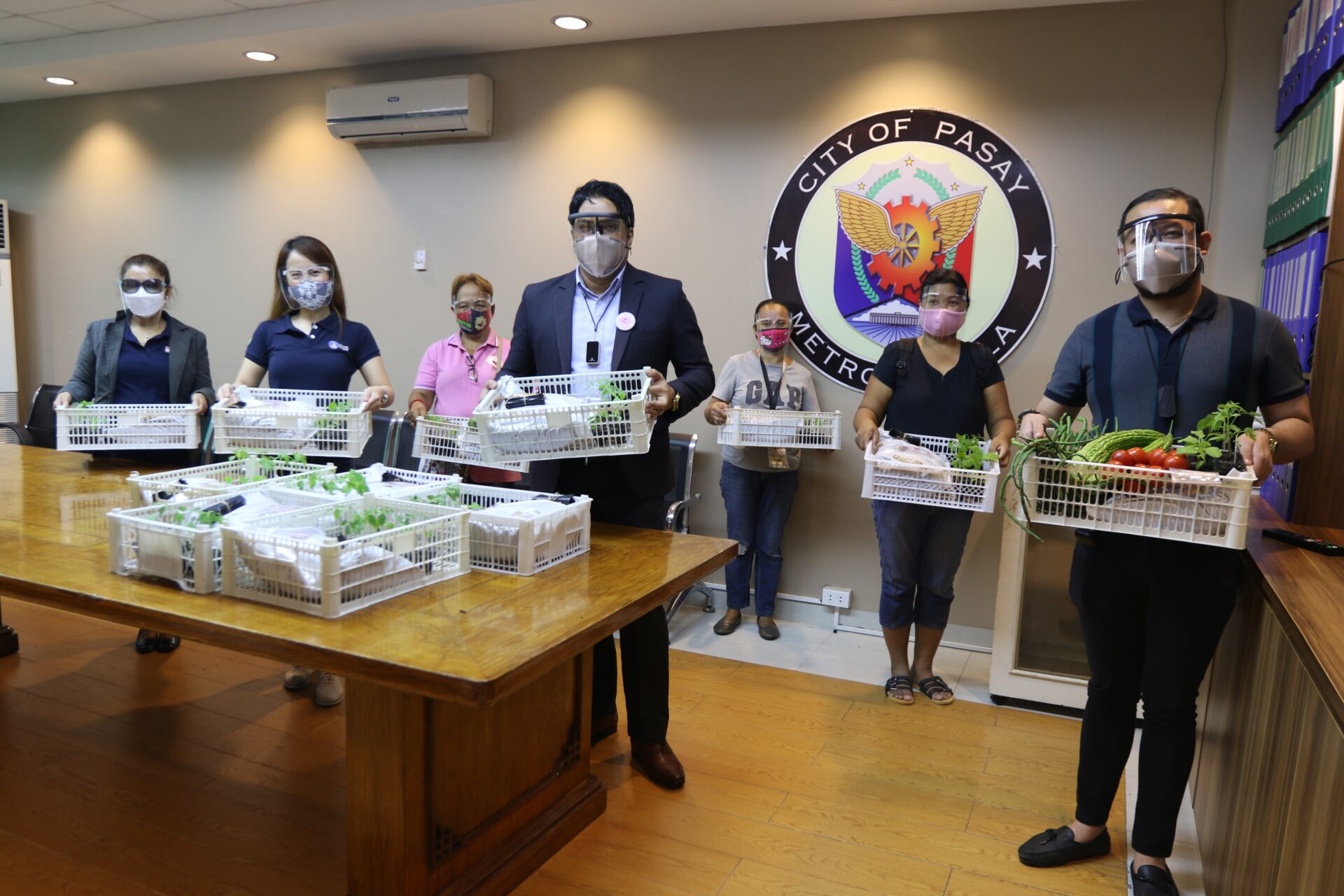
In its continued thrust to uplift and empower the lives of Filipinos as well as to promote food sustainability, the Light Rail Manila Corporation (LRMC), in partnership with Metro Pacific Investments Foundation (MPIF), distributed agricultural starter kits to communities in Pasay and Manila for the Bayan Tanim campaign.

Evoking the spirit of bayanihan in facing the challenges brought about by the new normal, as well as the advocacy of sustainable living and trend of maintaining home gardens, LRMC sponsored 100 crates of tomato, squash, sitaw, ampalaya and talong seeds and seedlings for beneficiaries in Brgy. 190 in Pasay City and Brgy. 659A in Manila.
These seedlings, along with the tools and the soil that allow the beneficiaries to grow the plants on their own, are intended to serve as a sustainable food source for low-income families who may be dealing with the challenges of today’s extraordinary circumstances.
“We, at LRMC, are committed to doing our part in building a more sustainable society. By supporting MPIF’s Bayan Tanim, we are able to provide agricultural starter kits to 100 families from Manila and Pasay, who are part of the communities that LRT-1 serves. This is one of our ways of reaching out to them in these trying times, while at the same time encouraging people to grow their own food and learn more about where it comes from.”, said Juan Alfonso, President and CEO of LRMC.
“Growing your own produce is a simple solution to numerous health, environmental and economic problems. There is an untapped potential for small scale home vegetable growing that leads to self-sufficiency, sustainability, including physical and mental well-being,” says MPIF President Melody del Rosario. “During these uncertain and challenging times, Bayan Tanim can transform us into a plant nation for a sustainable means of living that communities can rely on long after this pandemic is over.”
The seedling crates are provided by partner organization AGREA, an agriculture collective that aims to eradicate poverty for Filipino farming and fishing families, establish food security, and alleviate the effects of climate change in the Philippines.
As a testament to its commitment to helping Filipinos, LRMC had previously worked with these communities in various cleanup and beautification projects.





